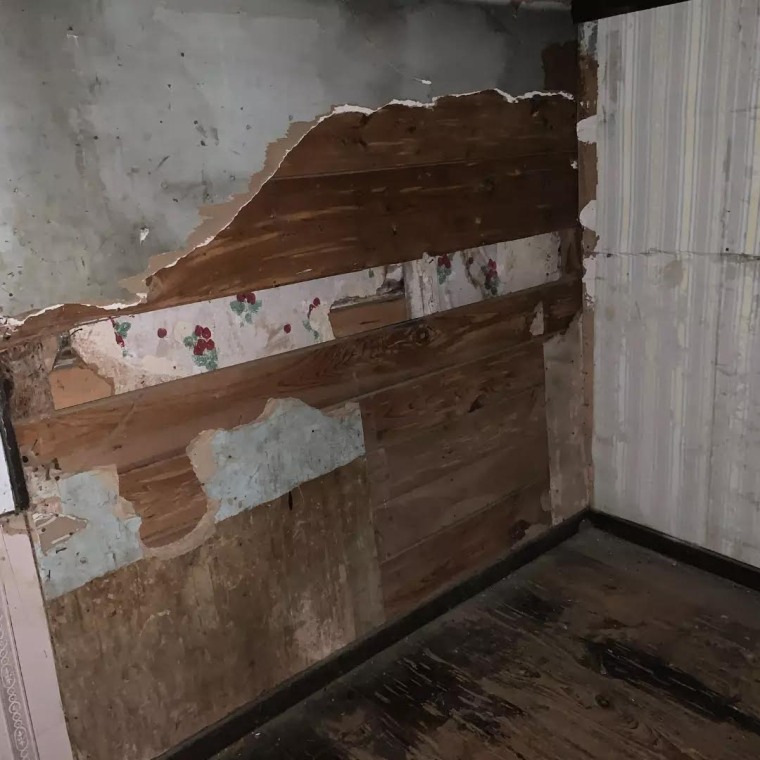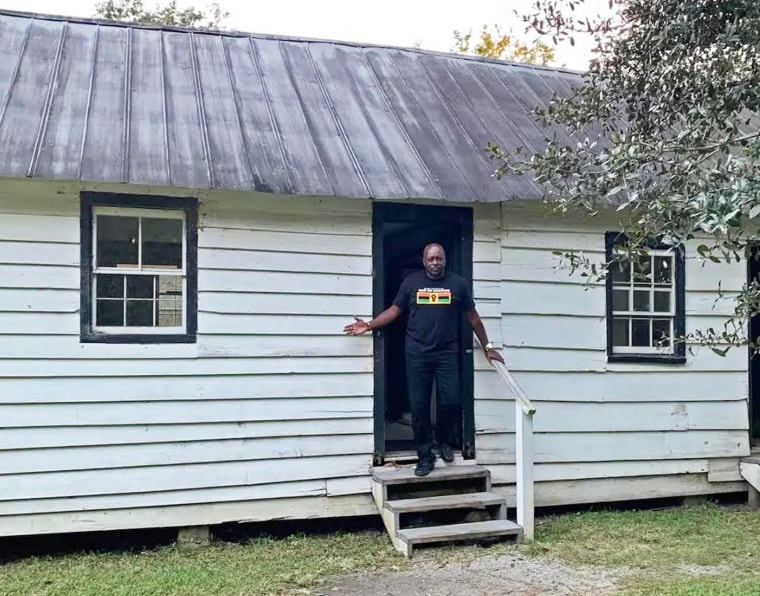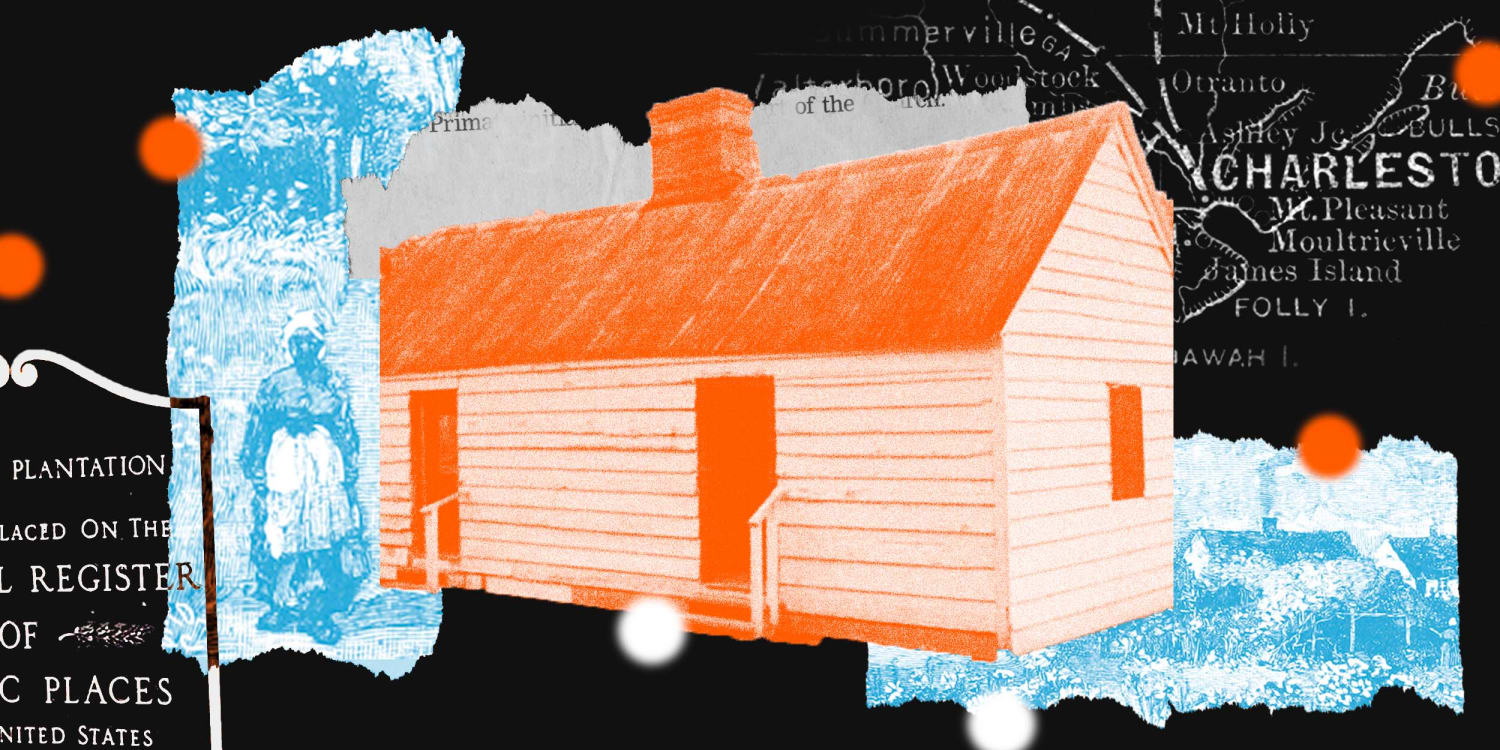There was a moment when a white man said his father considered racism “nonsense.”
“Well, your dad doesn’t have to think about systemic racism,” a Black woman responded. “In this country, all you have to be is white. You don’t have to be intelligent. You just have to be white. And people fought and murdered for that to be the case.”
She stressed the importance of this moment and of how these types of conversations often take place within Black families, including her own.
“Being here at a plantation where a certain group of people — enslaved people who look like you — this is important that Black kids learn this stuff.”
Again, awkward silence.
When the conversation concluded, Felita and I scanned the five cabins available for us to sleep in overnight. The accommodations were so shabby that my excitement about the experience diminished. My first instinct was to open an app on my phone and search for nearby hotels. But Felita said “that one” as she pointed toward the white, rickety structure in the center of the row, and that was that.
Around 9 p.m., I gathered our folding chairs. We said our good nights to the group and entered our cabin to begin an unforgettable and restless 10 hours.
These small cabins weren’t much more than thin wood separating my ancestors from the outside elements. There was no running water or electricity, so winters and summers were harsh. The conditions would be considered inhumane by modern standards.
We were met upon entering by a damp, dingy smell — an aroma of agony. I had had the foresight to bring a candle; otherwise, we would have been sitting in the dark. Linoleum covered the floor, which almost surely had once been dirt. I imagined there were times when the ancestors laughed and felt love there, but all amid the trauma of their existence.

There were no beds or cots on which to sleep, as was the case for the ancestors, so we settled into our folding chairs for the night. I said a short prayer: “Lord, I pray that the ancestors know that staying here is our genuine attempt to connect with them. Amen.”
For a while, we watched on my cellphone the Netflix documentary series “High on the Hog,” about the origins of soul food. It had been mentioned during the fireside chat, and I thought it would be an effective way to kill time and keep our minds off of the evocative nature of where we were. Ironically, part of that film took place around the campfire we had just left, maybe 30 yards from where we had sat. But when my phone battery died, we were left to face our conditions without distraction.
We chatted about what it must have been like for the ancestors who were forced there, holed up in West Africa in the dungeons, then treated as cattle on ships for months traveling across the Atlantic Ocean. Once they arrived in Charleston, they were put on the block and sold. Sold. Finally, they were chained and thrown onto the plantation, into the very place we sat.
How frightened and confused they must have been.
It was hard to sleep. Not just because the cloth folding chairs were uncomfortable and the night turned cold, but because there was no controlling the endless thoughts of the horrors experienced by the captive Africans. And with each thought came sadness. And anger.
The bathroom, a public facility, was about 100 yards away, so when it was time for one to go, we both went. The moon illuminated the sky, and the campfire continued to burn. But there always was the feeling that an animal — or something — would emerge from the bushes.
I nodded off, finally. But just after 4 a.m., Felita nudged me. “Listen,” she said.
What I heard — what we heard — was distinct: a woman screaming. The sound came from the direction of the cemetery. There was deep, writhing pain in the disturbing shrieks, which lasted about 10 seconds.
“That was not an animal,” Felita said. “Oh, my God.”
Although the sounds initially scared me, they also affirmed that the spirit of the ancestors persists. I took it as their communicating that they felt our presence — and that what took place there was dreadful.
It was even more difficult to sleep after that. Over the next couple of hours, we pondered what we were experiencing. Near daybreak, we looked out the back window, toward the cemetery, and eventually watched the sun rise. Thick mist seemed to ascend from the ground to cover part of the terrain, creating a poignant and unsettling image of the landscape.

As we gathered our things — we slept in our clothes, so that didn’t take long — I felt a rise in purpose and a closer connection to my past, to my ancestors, to myself. That night reinforced that I have a reservoir of power within me that can be tapped into at any time. I felt their pain, but I mostly felt their strength. And I was consumed with pride.
Before we left the cabin, we paused at the door and prayed: “God, thank you for getting us through this night. Please let our ancestors know that we love them and that we are proud of their strength and courage in the face of so much evil and that our connection to them is stronger now than ever. And please, Lord, help their souls to rest in peace.”
And then we walked out. A minute or so later, Felita asked two white women who had spent the night in a cabin next to ours whether they heard the screams. They said they hadn’t, although they never went to sleep. Maybe they were meant for only us to hear.
Source: | This article originally belongs to Nbcnews.com






